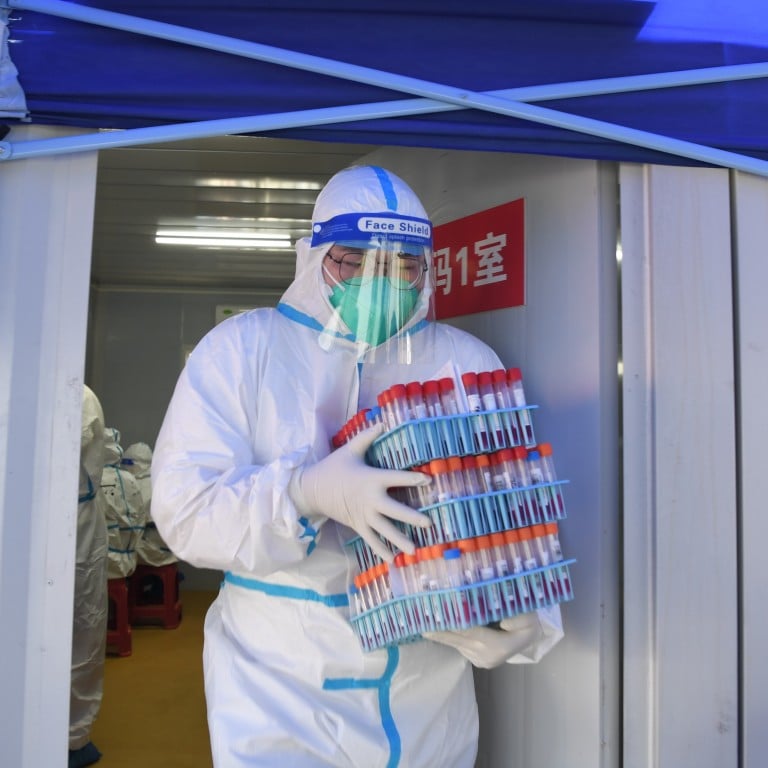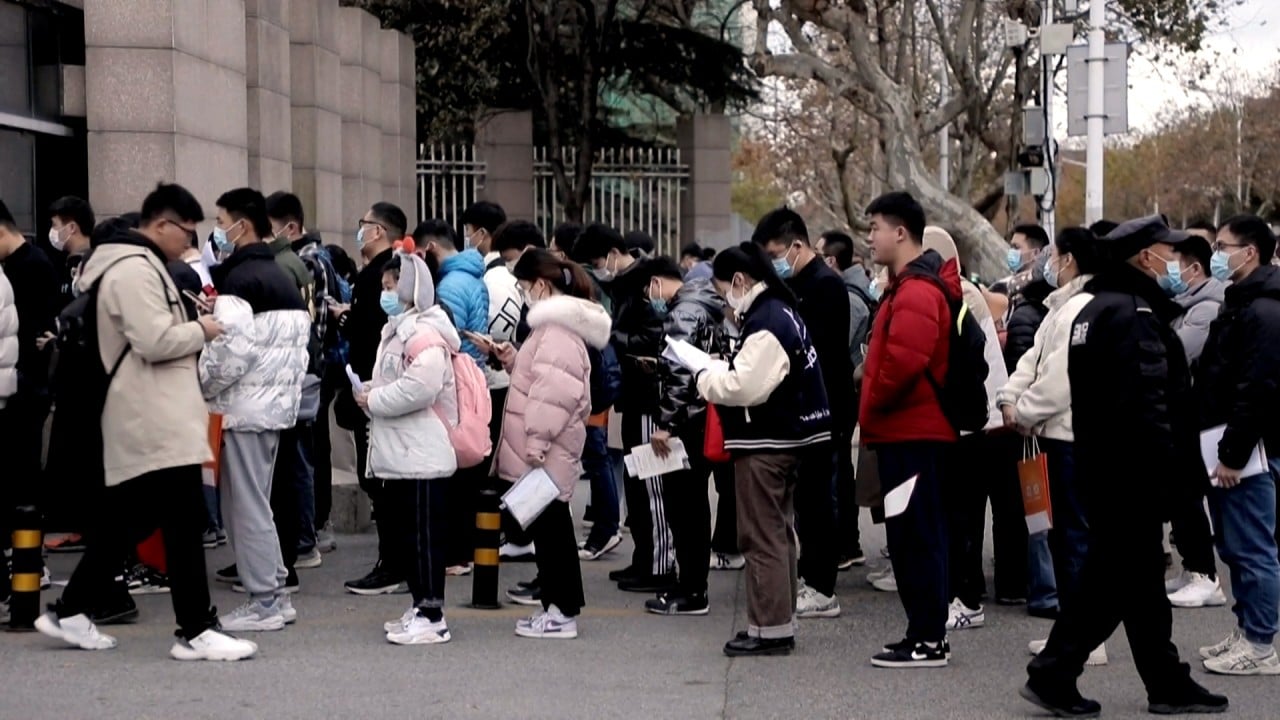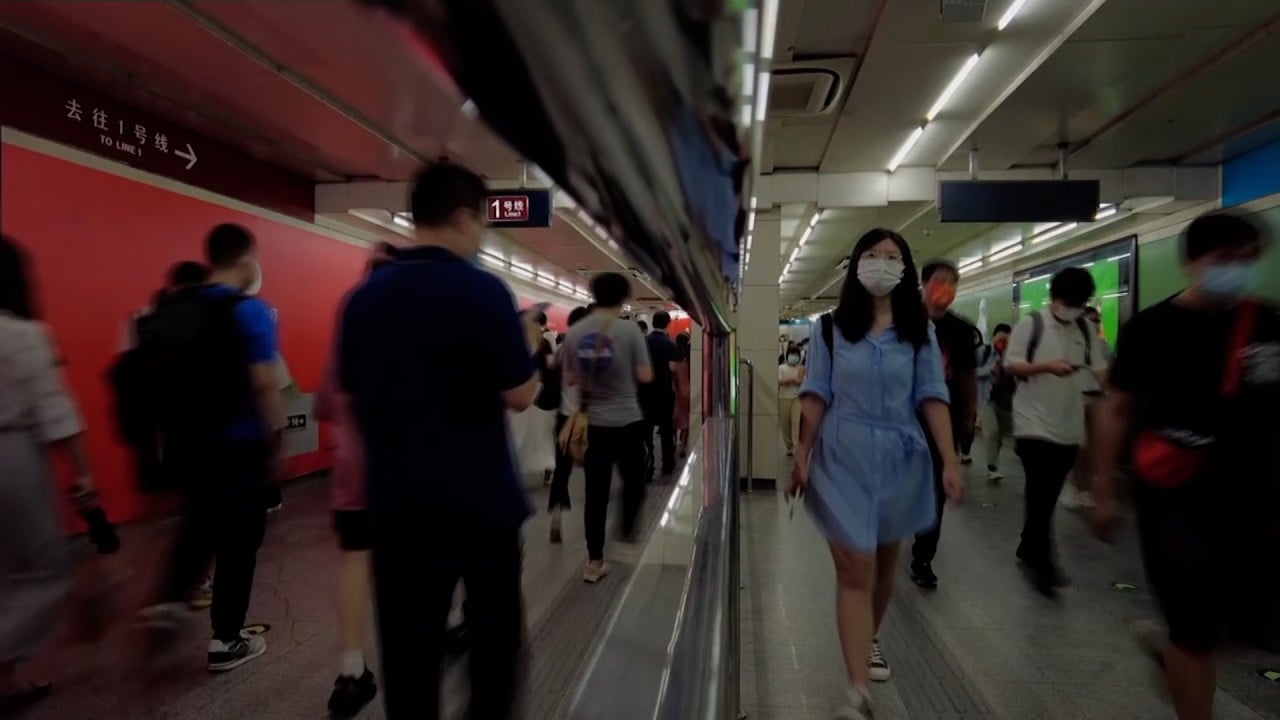
China’s zero-Covid strategy, tumbling tax revenue put local government services and jobs under threat
- The suspension of public transport services and delayed salary payments to civil servants have sparked concern about the fiscal condition of local governments
- Stringent coronavirus controls, falling revenue from land sales and Covid-related tax cuts are coming at a huge cost to cash-strapped local governments
The cost of China’s zero-Covid policy coupled with declining fiscal revenue is putting enormous financial stress on local governments, forcing some authorities to slash public services and delay payments to civil servants, while threatening the operation of hospitals.
The recent suspension of bus services in two towns has sparked concern about a rolling back of essential services in China, as local government finances have become increasingly precarious.
Dancheng, a town with a population of 1.06 million in central Henan province, suspended bus services last Friday.
“The bus company has difficulty operating, and the drivers’ salaries have not been paid for several months, which has led to the services suspension of all urban buses,” said the county’s public transport company in a notice, which was later deleted from its official WeChat account.
Tourism, farming and crafts: China’s villages seek a blueprint for revival
Meanwhile, multiple bus lines in Boluo county, Guangdong province, have also been slashed or suspended due to financial stress, according to a Caixin report on Sunday.
During the first seven months of the year, China’s fiscal revenue dropped by 9.2 per cent year on year, according to official data released on Wednesday.
Tax revenue came in at nearly 10.27 trillion yuan (US$1.5 trillion) over the same period, down 13.8 per cent on a year earlier.
The central government collected around 5.74 trillion yuan in fiscal revenue, a decrease of 11.2 per cent, while local governments collected 6.75 trillion yuan, a fall of 7.6 per cent, according to the Ministry of Finance.
These tactics are like band-aids
Experts say there is no easy way to increase local government income except through economic recovery.
Reducing expenditure, such as cutting officials’ salaries and benefits – and even reducing headcounts – is unlikely to alleviate fiscal pressure, said Hong Hao, an independent economist.
“These tactics are like band-aids,” Hong said.
In a few small towns in the southwestern province of Yunnan, some civil servants have not been paid for more than six months, according to local sources speaking on condition of anonymity.
“Yunnan has been paying lots of effort to promote its tourism industry [to gain more fiscal revenue]. Earlier the civil servants here were given some bonuses, but the salaries have not been paid yet,” a source in the city of Chuxiong said.
Two civil servants from northeastern Jilin province and central Hubei province also said they had not received merit pay for the past year, which is related to performance.
While the security of the “iron rice bowl” may be under threat, poor government finances are also putting pressure on public hospitals.
“Because of the pandemic, the spending on protective gear has increased significantly, while the income from medical services has declined, the debt level of public hospitals has risen sharply,” the health commission in Huludao, Liaoning province, said in a reply to a proposal from the city’s political advisory body last month.
If local governments’ fiscal revenue dwindles, it will be hard to fill the gap
In Dandong, another city in Liaoning, one public hospital has not paid wages to employees for five consecutive months, according to local media reports in July.
“If local governments’ fiscal revenue dwindles, it will be hard to fill the gap. So lots of places will resort to cutting expenses,” said Zhang Zhiwei, chief economist at Pinpoint Asset Management.
“And this is a worrying trend, because many expenses related to people’s livelihoods will also be affected.”
Local government expenditure on public services or civil servant salaries should be from the general public budget, which is generated mainly from tax revenue, as opposed to off-budget land sale revenue that is primarily used to finance infrastructure.
But because of weakening economic momentum and rounds of tax refunds during the pandemic, the public budget has become constrained, experts said.
Last year, however, 10 regional governments were found to have illegally used money from special purpose bonds for business operations and personnel wages, according to an audit report from the State Council, China’s cabinet.
“If the revenue is not enough and the amount of general bond issuance does not increase, [local governments] can only reduce expenditure,” said Ding Shuang, chief Greater China economist with Standard Chartered Bank, adding there would be a knock on effect for consumption.
China denies request to raise local debt limit amid growing economic stress
For regions with population outflow, fiscal conditions are likely to be worse, Ding said.
“How can the government collect enough taxes if the population continues to flow out?” he said.
This year’s central government transfer quota to local authorities has almost been used up, Chinese Premier Li Keqiang said on Tuesday in a meeting with leaders from the country’s six most affluent provinces.
The transfer payments are expected to reach a record high of nearly 9.8 trillion yuan this year, up by about 1.5 trillion yuan from last year, according to data from the Ministry of Finance.
“Local governments should tighten their belts, put existing assets to better use, maintain a balance between revenue and expenditure, and guarantee fiscal spending to ensure people’s livelihoods,” Li said.
Ding said if the situation worsened Beijing might consider selling special sovereign bonds, which are a rarely used financing tool issued during a crisis. They were last used in 2020 to help lift the economy during the initial wave of coronavirus outbreak.
Dan Wang, chief economist at Hang Seng Bank China, said local governments can only rely on economic recovery for a real improvement of their fiscal condition.
“There is no other good way,” Wang said.
Additional reporting by Leona Liu



